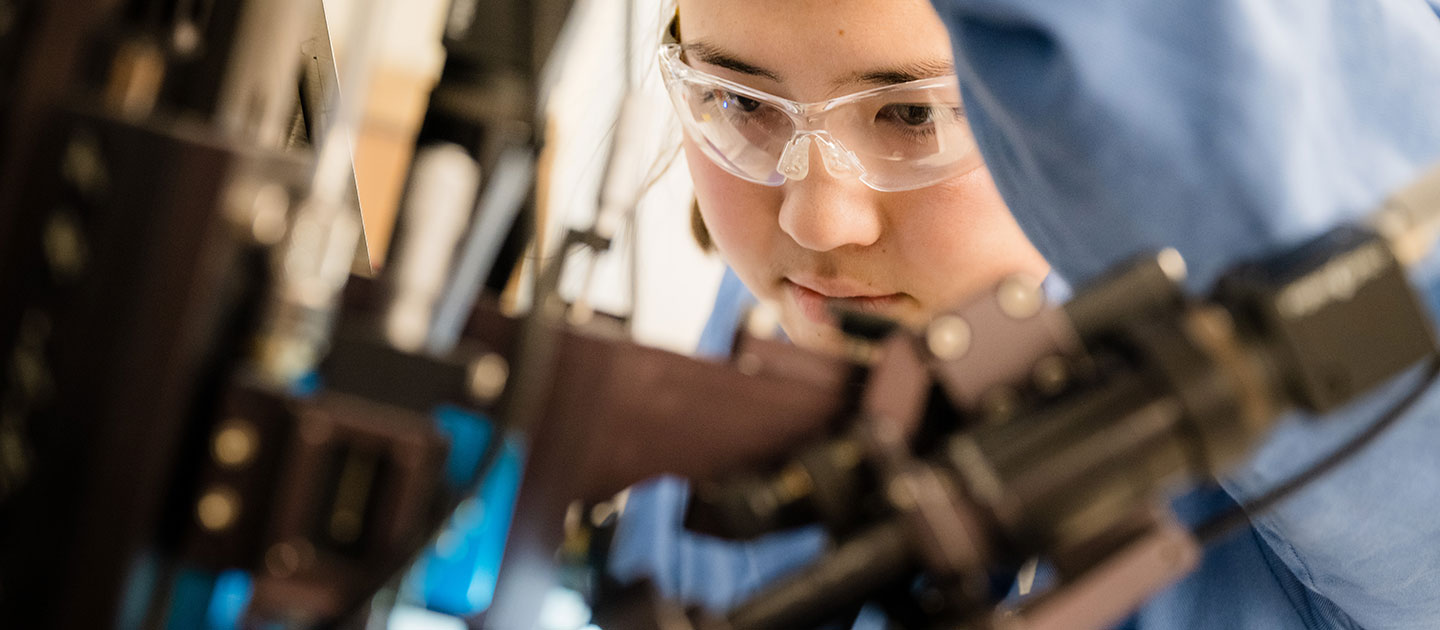Northwestern Engineering Launches Joint Mechanical Engineering, Materials Science MS Program
New program will leverage the strengths of the two departments

Northwestern Engineering’s Departments of Mechanical Engineering and Materials Science and Engineering share a strong history of interconnected research activities, established research centers, and close educational efforts. The collaboration between these departments is driven by numerous research areas of national priority, including advanced manufacturing, aerospace, civil infrastructure, the data revolution, energy storage, integrated computational materials engineering, and the Materials Genome Initiative.
The two departments’ relationship is taking another step forward.
Starting in fall 2024, the joint Master of Science in Mechanical Engineering and Materials Science & Engineering program will present a unique degree opportunity offering a curriculum that combines the strengths of these two departments. Co-directed by the McCormick School of Engineering’s Yip-Wah Chung and Greg Wagner, this interdisciplinary program allows the most talented students to develop broad expertise in both fields, enhancing career opportunities in industry and research.
 “The cross-cutting approach taken by the Departments of Mechanical Engineering and Materials Science and Engineering exemplifies their commitments to engaging in transdisciplinary collaboration, pioneering innovations, and delivering transformative curricula,” said Shelley Finnigan, associate dean for master’s and professional education at Northwestern Engineering. “By strengthening the bridge between two important fields, we are further empowering our graduates to succeed in interdisciplinary environments and to tackle the complex challenges they will face throughout their careers.”
“The cross-cutting approach taken by the Departments of Mechanical Engineering and Materials Science and Engineering exemplifies their commitments to engaging in transdisciplinary collaboration, pioneering innovations, and delivering transformative curricula,” said Shelley Finnigan, associate dean for master’s and professional education at Northwestern Engineering. “By strengthening the bridge between two important fields, we are further empowering our graduates to succeed in interdisciplinary environments and to tackle the complex challenges they will face throughout their careers.”
Chung said the program fills a crucial need by equipping future engineers with the holistic skill set needed to drive transformative advancements in technology and industry across different disciplines.
 “The symbiotic relationship between these two departments underscores the critical need for a new generation of engineers equipped with the interdisciplinary expertise to navigate seamlessly between mechanical engineering and materials science and engineering,” said Chung, professor of materials science and engineering. “A joint master's program in these fields not only meets this demand but also fosters a culture of innovation, where students learn to transcend conventional disciplinary boundaries. By nurturing this interdisciplinary mindset, graduates will be empowered to tackle complex challenges head-on, from sustainable infrastructure development to next-generation manufacturing processes.”
“The symbiotic relationship between these two departments underscores the critical need for a new generation of engineers equipped with the interdisciplinary expertise to navigate seamlessly between mechanical engineering and materials science and engineering,” said Chung, professor of materials science and engineering. “A joint master's program in these fields not only meets this demand but also fosters a culture of innovation, where students learn to transcend conventional disciplinary boundaries. By nurturing this interdisciplinary mindset, graduates will be empowered to tackle complex challenges head-on, from sustainable infrastructure development to next-generation manufacturing processes.”
The MS in ME and MSE is a non-thesis master’s degree program, which students may complete on a full-time or part-time basis. Full-time students typically complete their degree in three to four quarters of study. Students will take four mechanical engineering and four materials science courses, plus 1-2 units of independent study involving a research project, and 2-3 additional engineering courses, allowing students to specialize or minor in a related area.
 “The alignment of our graduate-level courses ensures a curriculum rich in interdisciplinary content, enabling students to gain expertise across both fields,” said Wagner, Bette and Nelson Harris Chair in Teaching Excellence and associate professor of mechanical engineering. “By introducing a joint master's program between our mechanical engineering and materials science departments, we aim to deepen the collaborative bond between the two. This innovative program will attract top-tier applicants from both disciplines and elevate the desirability of its graduates in the eyes of prospective employers.”
“The alignment of our graduate-level courses ensures a curriculum rich in interdisciplinary content, enabling students to gain expertise across both fields,” said Wagner, Bette and Nelson Harris Chair in Teaching Excellence and associate professor of mechanical engineering. “By introducing a joint master's program between our mechanical engineering and materials science departments, we aim to deepen the collaborative bond between the two. This innovative program will attract top-tier applicants from both disciplines and elevate the desirability of its graduates in the eyes of prospective employers.”
The development of the program also represents another significant leap for Northwestern Engineering as a whole.
“This joint MS degree program not only embodies McCormick’s core DNA of interdisciplinary collaboration, but also signifies potential avenues for expanding our educational and research endeavors and potential industrial partnerships,” Chung said. “It underscores our dedication to staying at the forefront of engineering education and research, positioning McCormick as a leader in cultivating the next generation of interdisciplinary engineers and innovators.”